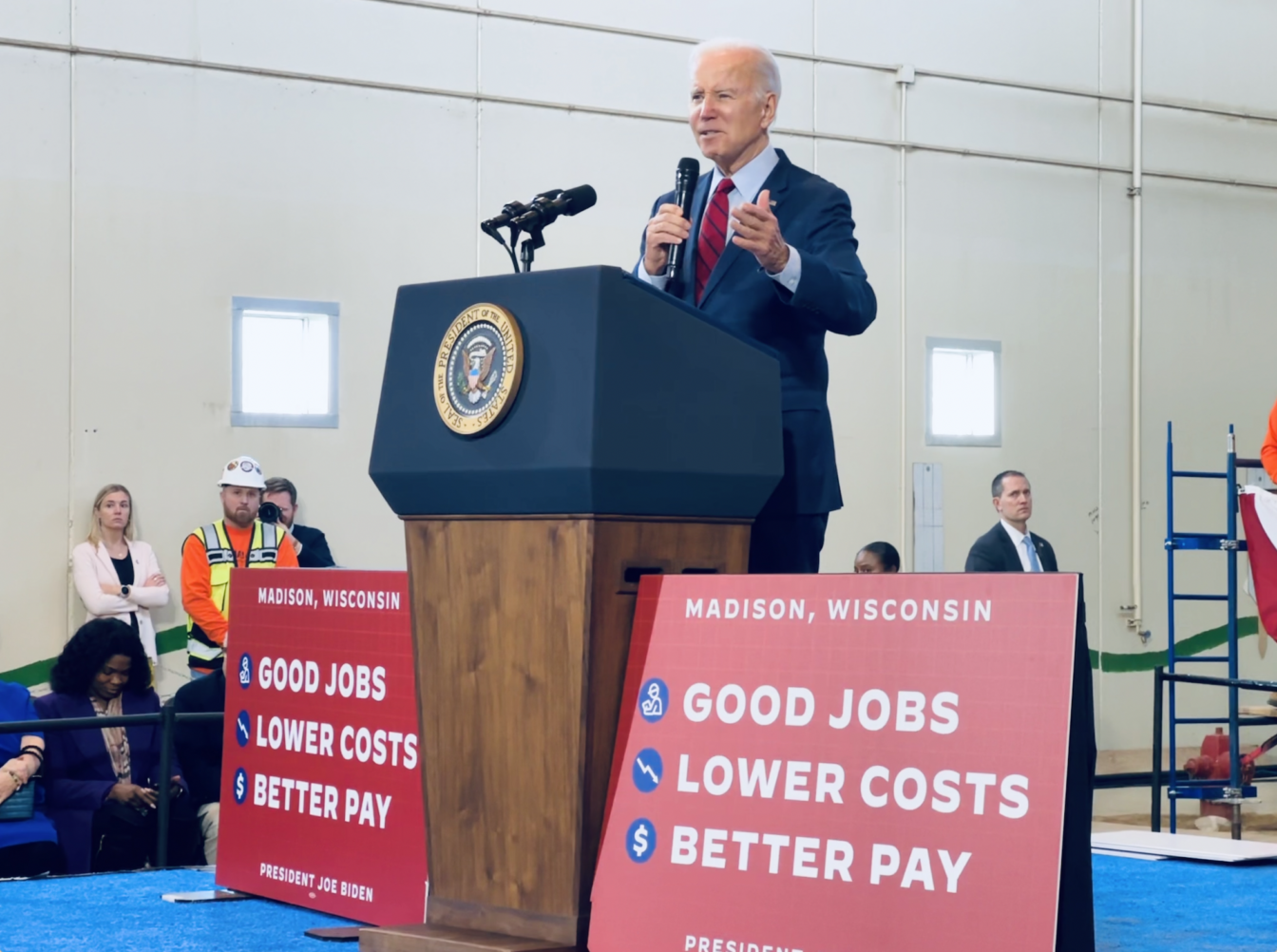Wisconsin leaders visited the White House for the “Communities in Action: Building a Better Wisconsin” event Thursday.
Madison Mayor Satya Rhodes-Conway, Milwaukee Mayor Cavalier Johnson and other state community leaders discussed ways President Joe Biden’s economic plan has positively affected Wisconsin residents.
Thursday’s event consisted of around 50 Wisconsinites, including veteran groups, social service groups, labor unions, the conservation community and elected officials such as mayors from cities across the state, executive director for the Wisconsin Conservation Voters Kerry Schumann said.
“It was an opportunity for us to hear from … key people in the administration, about some of the core programs that will really impact and are already impacting Wisconsin,” Schumann said. “The second half of the day was … us telling the administration how we were seeing it in action already.”
Senior Biden-Harris administration officials gave presentations, and there was a roundtable discussion to share how these federal policies have helped, harmed and promoted projects for Wisconsin, Milwaukee mayor communications director Jeff Fleming said.
This meeting is part of a larger series of events called “Communities in Action: Building a Better America” hosted by the White House, according to WISN Milwaukee. It allows Wisconsin and other states to both present information about their plans with federal funding and listen to information about the success of the Biden-Harris administration’s economic plan, Fleming said.
“There are certainly people on the invite list, who are supporters of the president, but there are certainly people on that list who are not known to be supporters of the president,” Fleming said. “So I think it’s fair to describe this as a genuine listening session and an opportunity to hear a variety of voices about federal-state interactions.”
The state’s capital secured over $400 million in federal funding, according to a press release from the city of Madison. Federal laws and programs such as the Inflation Reduction Act and Bipartisan Infrastructure Law make these investments possible.
These federal laws and programs allow Wisconsin to capitalize on workforce and economic development opportunities, Schumann said.
“These investments from the Inflation Reduction Act from the Biden administration are going directly to companies, to consumers [and] to local governments, to do the work to invest in clean energy, to invest in retrofitting to weather and weatherization,” Schumann said. “Consumers can buy new appliances and get tax credits and companies can invest in solar power for their company, and there’s just so many opportunities that we didn’t have in Wisconsin because our legislature has been blocking it for years.”
The IRA covers 30% of community solar project costs and overall will allow a clean energy economy and workforce for Wisconsin. The BIL gave Wisconsin over $95 million to lower energy costs and will help Wisconsin communities achieve safe drinking water, according to a email press release from the Wisconsin Conservation Voters.
Vision Zero Program results in fewer traffic-related deaths, injuries
Wisconsin can look forward to improvements such as better drinking water quality and getting rid of lead pipes that can be harmful, especially to children. Actions like these, which might’ve taken years to pay for, can be taken by the state’s communities much faster due to these investments, Schumann said.
The clean energy, jobs, justice and health plan that is needed to power homes, vehicles and buildings with reliable, renewable energy has begun thanks to federal funding, according to the press release from the Wisconsin Conservation Voters.
The event’s discussion focused on what is most effective in federal support of activities in Wisconsin as well as what’s needed most and what works best for the state, Fleming said.
“They’re really tangible things. I mean, as a consumer, it’s really tangible,” Schumann said. “You could get tax credits for an electric vehicle or for a new oven or to weatherize your house. It’s all very tangible things that these investments will impact.”


















